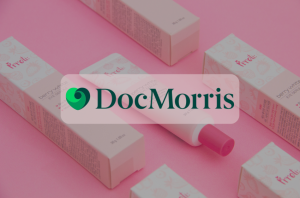

Introduction to Skincare and Its Importance
1. Introduction to Skincare and Its Importance - Skincare is often seen as a cosmetic or superficial practice, but it is actually an essential part of our overall health and well-being. Our skin is the largest organ in our body and serves as a protective barrier against external elements such as pollutants, UV rays, and bacteria. Therefore, taking care of our skin is crucial for maintaining its health and function.
Skincare refers to the daily routine of cleansing, moisturizing, protecting, and treating the skin to maintain its natural balance and prevent any potential issues. It involves using products that are specifically designed for different skin types and concerns.
The importance of skincare goes beyond just achieving a glowing complexion. Here are some key reasons why investing time and effort into your skincare routine can have significant benefits:
1.1 Prevents Premature Aging - As we age, our skin undergoes changes that lead to visible signs of aging such as fine lines, wrinkles, sagging skin, dark spots, etc. These changes are primarily caused by factors like environmental stressors (UV radiation), lifestyle habits (smoking), genetics, hormonal changes, etc.
Regularly following a good skincare routine from an early age can help delay these signs of aging by keeping the skin hydrated, nourished with essential nutrients, protected from UV rays with sunscreen usage and preventing free radical damage with antioxidants.
5 Ways to Boost Your Skincare Routine:
Taking care of your skin is essential for maintaining a healthy and glowing complexion. However, many people struggle to establish an effective skincare routine that works for their specific skin type and concerns. Thankfully, there are various ways to boost your skincare routine and achieve the radiant skin you've always desired. In this section, we will discuss some helpful tips on how to enhance your skincare routine.
1. Identify Your Skin Type - The first step towards boosting your skincare routine is understanding your skin type. This will help you choose the right products and ingredients that cater to your specific needs. There are generally four main types of skin: dry, oily, combination, and sensitive. If you're unsure about your skin type, visit a dermatologist or use online resources to determine it accurately.
2. Cleanse Your Skin Twice A Day - Cleansing is an essential step in any skincare routine as it helps remove dirt, oil, and other impurities from the surface of the skin. Make sure to cleanse your face twice a day - once in the morning and once at night - using a gentle cleanser suitable for your skin type. Avoid harsh soaps or scrubs as they can strip off natural oils from your skin.
3. Exfoliate Regularly - Exfoliation involves removing dead cells from the surface of the skin to reveal smoother and brighter-looking complexion underneath. It also helps unclog pores and prevent breakouts caused by excess sebum production or accumulation of dead cells on the surface of the skin.
1. Cleansing Techniques for Effective Skin Cleaning
When it comes to maintaining a healthy and glowing complexion, one of the most important steps is effective skin cleansing. Cleansing your skin not only removes dirt, oil, and makeup but also helps to unclog pores and prevent breakouts. However, simply washing your face with water and soap may not be enough to properly cleanse your skin. Here are some techniques that can help you achieve effective skin cleaning for a healthier complexion:
1. Double Cleansing: One of the most popular techniques for effective skin cleansing is double cleansing. As the name suggests, this method involves using two different types of cleansers - an oil-based cleanser followed by a water-based cleanser. The first step with an oil-based cleanser helps to remove any makeup, sunscreen, or excess sebum from the surface of your skin while also breaking down any impurities that have built up throughout the day. The second step with a water-based cleanser helps to remove any remaining residue and deeply cleanse your pores.
2. Facial Steaming: Another technique that can enhance the effectiveness of your skincare routine is facial steaming. Steaming opens up your pores and allows for deeper penetration of your skincare products, making them more effective at removing impurities from deep within the skin. You can steam your face by placing a warm towel over it or by using a facial steamer specifically designed for this purpose.
2. Importance of Exfoliation for a Healthy Glow
Exfoliation is an essential step in any skincare routine and plays a vital role in achieving a healthy and glowing complexion. It involves the process of removing dead skin cells from the surface of the skin, allowing for new, fresh skin cells to emerge. While our skin naturally sheds dead cells, it can benefit greatly from exfoliation as it helps speed up this process.
One of the main reasons why exfoliation is important for a healthy glow is that it helps unclog pores. Our skin is exposed to various environmental pollutants, makeup residue, and natural oils produced by our bodies throughout the day. If these impurities are not removed regularly, they can build up on the surface of the skin and clog pores. This can lead to acne breakouts, blackheads, and dull-looking skin. Regular exfoliation clears out these impurities, keeping pores clean and minimizing their appearance.
Moreover, exfoliating also promotes better absorption of skincare products. When there is a layer of dead skin cells on the surface of your skin, it becomes challenging for your serums and moisturizers to penetrate deeply into your skin. By removing this barrier through exfoliation, you allow your skincare products to work more effectively by reaching deeper layers of your skin.
3. The Power of Moisturizing: Choosing the Right Products
Moisturizing is a vital step in any skincare routine, regardless of your skin type. It helps to keep the skin hydrated, nourished and protected from environmental stressors. However, with so many different products on the market, it can be overwhelming to choose the right moisturizer for your skin.
In this section, we will discuss the power of moisturizing and provide tips on how to choose the best products for your specific needs.
Why Moisturizing Is Important - Our skin naturally produces oils to keep itself moisturized. However, factors such as aging, environmental pollutants, and harsh weather conditions can disrupt this balance and lead to dryness or excessive oil production. This is where moisturizers come in.
Moisturizers work by creating a barrier on the surface of the skin that locks in moisture and prevents water loss. They also contain ingredients that hydrate and nourish the skin cells, helping them function properly. Regular use of moisturizers can improve your skin's texture and appearance by reducing fine lines, wrinkles, and flakiness.
Choosing The Right Moisturizer For Your Skin:
When it comes to selecting a moisturizer for your skincare routine, it's crucial to consider your individual needs rather than just following trends or recommendations from others.

4. Incorporating Face Masks into Your Routine
In recent years, face masks have become a popular addition to skincare routines. These concentrated treatments offer a range of benefits for the skin, from hydration and nourishment to deep cleansing and brightening. Incorporating face masks into your routine can help boost your overall skincare regimen and lead to a healthier and more radiant complexion.
But with so many types of face masks available on the market, it can be overwhelming to know where to start. Here are some tips for effectively incorporating face masks into your routine:
1. Identify Your Skin Concerns - The first step in choosing the right face mask is understanding your skin's specific needs. Do you struggle with dryness or dullness? Are you prone to breakouts or have uneven skin tone? Identifying your main skin concerns will help you select a mask that targets those issues.
2. Choose the Right Type of Mask - There are many different types of face masks available, each designed to address specific concerns. Sheet masks are great for hydration and soothing, while clay or charcoal-based masks are ideal for deep cleansing and removing impurities from the pores. Gel masks work well for combination or oily skin, while cream-based masks provide intense moisture for dry skin.
3. Frequency Matters - How often you should use a face mask depends on its ingredients and your skin type. Generally, it is recommended to use a hydrating or soothing mask 1-2 times a week, while exfoliating or purifying masks can be used up to 3 times per week
5. Protecting Your Skin from Harmful UV Rays: Sunscreen is Key!
One of the most important steps in any skincare routine is protecting your skin from harmful UV rays. The sun's ultraviolet (UV) radiation can cause damage to our skin, including premature aging, sunburns, and even skin cancer. This is why sunscreen should be an essential part of your daily skincare regimen.
Here are some key reasons why sunscreen is crucial for protecting your skin:
1. Protects against UVA and UVB rays - Ultraviolet A (UVA) and Ultraviolet B (UVB) are two types of rays that come from the sun and can harm our skin. UVA rays penetrate deep into the skin and can cause long-term damage such as wrinkles, dark spots, and sagging. On the other hand, UVB rays are responsible for causing sunburns and increasing the risk of developing skin cancer.
A broad-spectrum sunscreen provides protection against both UVA and UVB rays, shielding your skin from these harmful effects.
2. Prevents premature aging - Exposure to the sun's UV rays can lead to premature aging of the skin. This includes fine lines, wrinkles, age spots, and a loss of elasticity in the skin. By using sunscreen daily, you can help prevent these signs of aging caused by environmental factors.


